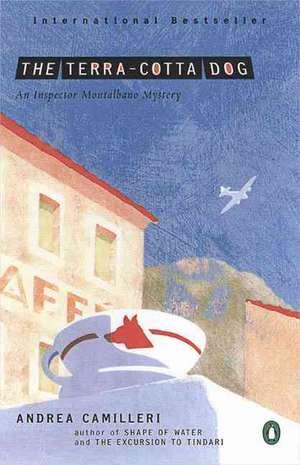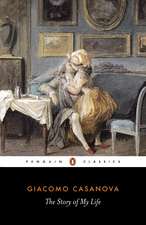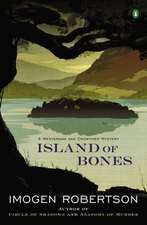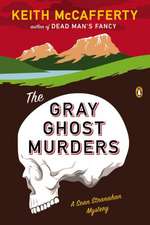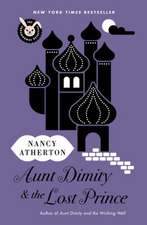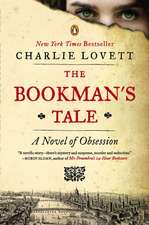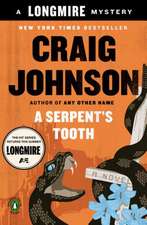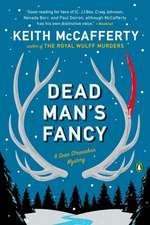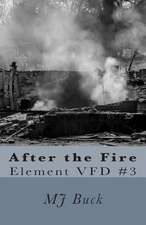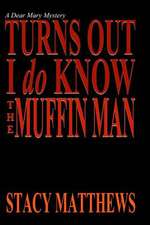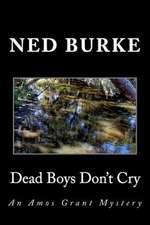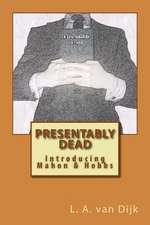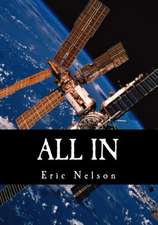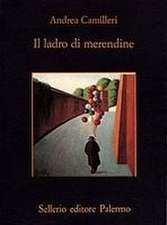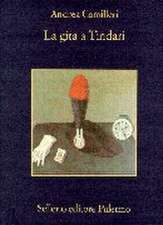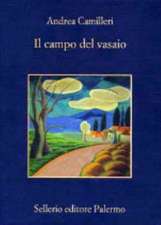The Terra-Cotta Dog: Inspector Montalbano Mysteries
Autor Andrea Camilleri Traducere de Stephen Sartarellien Limba Engleză Paperback – 30 apr 2005 – vârsta de la 18 ani
Vezi toate premiile Carte premiată
Anthony Awards (2003)
Andrea Camilleri's Inspector Montalbano has garnered millions of fans worldwide with his sardonic take on Sicilian life. Montalbano's latest case begins with a mysterious têtê à têtê with a Mafioso, some inexplicably abandoned loot from a supermarket heist, and dying words that lead him to an illegal arms cache in a mountain cave. There, the inspector finds two young lovers, dead for fifty years and still embracing, watched over by a life-sized terra-cotta dog. Montalbano's passion to solve this old crime takes him on a journey through Sicily's past and into one family's darkest secrets. With sly wit and a keen understanding of human nature, Montalbano is a detective whose earthiness, compassion, and imagination make him totally irresistable.
Preț: 121.82 lei
Nou
Puncte Express: 183
Preț estimativ în valută:
23.31€ • 24.19$ • 19.49£
23.31€ • 24.19$ • 19.49£
Carte tipărită la comandă
Livrare economică 17-31 martie
Preluare comenzi: 021 569.72.76
Specificații
ISBN-13: 9780142004722
ISBN-10: 0142004723
Pagini: 352
Dimensiuni: 131 x 195 x 15 mm
Greutate: 0.23 kg
Editura: Penguin Books
Seria Inspector Montalbano Mysteries
ISBN-10: 0142004723
Pagini: 352
Dimensiuni: 131 x 195 x 15 mm
Greutate: 0.23 kg
Editura: Penguin Books
Seria Inspector Montalbano Mysteries
Notă biografică
Andrea Camilleri's Montalbano mystery series, bestsellers in Italy and Germany, has been adapted for Italian television and translated into German, French, Spanish, Portuguese, Greek, Japanese, Dutch, and Swedish. He lives in Rome.
Stephen Sartarelli lives in upstate New York.
Stephen Sartarelli lives in upstate New York.
Extras
To judge from the entrance the dawn was making, it promised to be a very iffy day—that is, blasts of angry sunlight one minute, fits of freezing rain the next, all of it seasoned with sudden gusts of wind—one of those days when someone who is sensitive to abrupt shifts in weather and suffers them in his blood and brain is likely to change opinion and direction continuously, like those sheets of tin, cut in the shape of banners and roosters, that spin every which way on rooftops with each new puff of wind.
Inspector Salvo Montalbano had always belonged to this unhappy category of humanity. It was something passed on to him by his mother, a sickly woman who used to shut herself up in her bedroom, in the dark, whenever she had a headache, and when this happened one could make no noise about the house and had to tread lightly. His father, on the other hand, on stormy seas and smooth, always maintained an even keel, always the same unchanging state of mind, rain or shine.
This time, too, the inspector did not fail to live up to his inborn nature. No sooner had he stopped his car at the ten-kilometer marker along the Vigàta-Fela highway, as he had been told to do, than he felt like putting it back in gear and returning to town, bagging the whole operation. He managed to control himself, brought the car closer to the edge of the road, opened the glove compartment, and reached for the pistol he normally did not carry on his person. His hand, however, remained poised in midair: immobile, spellbound, he stared at the weapon.
Good God! It's real! he thought.
The previous evening, a few hours before Gegè Gullotta called to set up the whole mess-Gegè being a small-time dealer of soft drugs and the manager of an open-air bordello known as "the Pasture"-the inspector had been reading a detective novel by a writer from Barcelona who greatly intrigued him and had the same surname as he, though hispanicized: Montalbán. One sentence in particular had struck him: "The pistol slept, looking like a cold lizard." He withdrew his hand with a slight feeling of disgust and closed the glove compartment, leaving the lizard to its slumber. After all, if the whole business that was about to unfold turned out to be a trap, an ambush, he could carry all the pistols he wanted, and still they would fill him with holes with their Kalishnikovs however and whenever they so desired, thank you and good night. He could only hope that Gegè, remembering the years they'd spent together on the same bench in elementary school and the friendship they'd carried over into adulthood, had not decided, out of self-interest, to sell him like pork at the market, feeding him any old bullshit just to lead him to the slaughter. No, not just any old bullshit: this business, if for real, could be really big, make a lot of noise.
He sighed deeply and began to make his way slowly, step by step, up a narrow, rocky path between broad expanses of vineyard. The vines bore table grapes, with round, firm seeds, the kind called, who knows why, "Italian grapes," the only kind that would take in this soil. As for trying to grow vines for making wine, in this soil you were better off sparing yourself the labor and expense.
The two-story cottage, one room on top of another, was at the summit of the hill, half-hidden by four large Saracen olive trees that nearly surrounded it. It was just as Gegè had described it. Faded, shuttered windows and door, a huge caper bush in front, with some smaller shrubs of touch-me-not-the small, wild cucumber that squirts seeds into the air if you touch it with the tip of a stick-a collapsed wicker chair turned upside down, an old zinc bucket eaten up by rust and now useless. Grass had overgrown everything else. It all conspired to give the impression that the place had been uninhabited for years, but this appearance was deceptive, and experience had made Montalbano too savvy to be fooled. In fact he was convinced that somebody was eyeing him from inside the cottage, trying to guess his intentions from the moves he would make. He stopped three steps in front of the house, took off his jacket, and hung it from a branch of the olive tree so they could see he wasn't armed. Then he called out without raising his voice much, like a friend come to visit a friend.
"Hey! Anybody home?"
No answer, not a sound. Montalbano pulled a lighter and a pack of cigarettes from his trouser pocket, put one in his mouth, and lit it, turning round halfway to shelter himself from the wind. That way whoever was inside the house could examine him from behind, having already examined him from the front. He took two puffs, then went to the door and knocked with his fist, hard enough to hurt his knuckles on the crusts of paint on the wood.
"Is there anyone here?" he asked again.
He was ready for anything, except the calm, ironic voice that surprised him from behind.
"Sure there is. Over here."
*
It had all started with a phone call.
"Hello? Hello? Montalbano! Salvuzzo! It's me, Gegè."
"I know it's you. Calm down. How are you, my little honey-eyed orange blossom?"
"I'm fine."
"Working the mouth hard these days? Been perfecting your blow-job techniques?"
"Come on, Salvù, don't start with your usual faggot stuff. You know damn well that I don't work myself. I only make other mouths work for me."
"But aren't you the instructor? Aren't you the one who teaches your multicolored assortment of whores how to hold their lips and how hard to suck?"
"Salvù, even if what you're saying was true, they'd be the ones teaching me. They come to me at age ten already well-trained, and at fifteen they're top-of-the-line professionals. I've got a little Albanian fourteen-year-old-"
"You trying to sell me your merchandise now?"
"Listen, I got no time to fuck around. I have something I'm supposed to give you, a package."
"At this hour? Can't you get it to me tomorrow morning?"
"I won't be in town tomorrow."
"Do you know what's in the package?"
"Of course. Mostaccioli with mulled wine, the way you like 'em. My sister Mariannina made them just for you."
"How's Mariannina doing with her eyes?"
"Much better. They work miracles in Barcelona."
"They also write good books in Barcelona."
"What's that?"
"Never mind. Just talking to myself. Where do you want to meet?"
"The usual place, in an hour."
*
The usual place was the little beach of Puntasecca, a short tongue of sand beneath a white marl hill, almost inaccessible by land, or rather, accessible only to Montalbano and Gegè, who back in grade school had discovered a trail that was difficult enough on foot and downright foolhardy to attempt by car. Puntasecca was only a few kilometers from Montalbano's little house by the sea just outside of Vigàta, and that was why he took his time. But the moment he opened the door to go to his rendezvous, the telephone rang.
"Hi, darling. It's me, right on time. How did things go today?"
"Business as usual. And you?"
"Ditto. Listen, Salvo, I've been thinking long and hard about what-"
"Livia, sorry to interrupt, but I haven't got much time. Actually I don't have any time at all. You caught me just as I was going out the door."
"All right then, good night."
Livia hung up and Montalbano was left standing with the receiver in his hand. Then he remembered that the night before, he had told her to call him at midnight on the dot, because they would certainly have as much time as they wanted to talk at that hour. He couldn't decide whether to call Livia back right then or when he returned, after his meeting with Gegè. With a pang of remorse, he put the receiver down and went out.
*
When he arrived a few minutes late, Gegè was already waiting for him, pacing back and forth the length of his car. They exchanged an embrace and kissed; it had been a while since they'd seen each other.
"Let's go sit in my car," said the inspector, "it's a little chilly tonight."
"They put me up to this," Gegè broke in as soon as he sat down.
"Who did?"
"Some people I can't say no to. You know, Salvù, like every businessman, I gotta pay my dues so I can work in peace and keep the Pasture, or they'd put me out to pasture in a hurry. Every month the good Lord sends our way, somebody comes by to collect."
"For whom? Can you tell me?"
"For Tano the Greek."
Montalbano shuddered, but didn't let his friend notice. Gaetano "the Greek" Bennici had never so much as seen Greece, not even through a telescope, and knew as much about things Hellenic as a cast-iron pipe, but he came by his nickname owing to a certain vice thought in the popular imagination to be greatly appreciated in the vicinity of the Acropolis. He had three certain murders under his belt, and in his circles held a position one step below the top bosses. But he was not known to operate in or around Vigàta; it was the Cuffaro and Sinagra families who competed for that territory. Tano belonged to another parish.
"So what's Tano the Greek's business in these parts?"
"What kind of stupid question is that? What kind of fucking cop are you? Don't you know that for Tano the Greek there's no such thing as 'these parts' and 'those parts' when it comes to women? He was given control and a piece of every whore on the island."
"I didn't know. Go on."
"Around eight o'clock this evening the usual guy came by to collect; today was the appointed day for paying dues. He took the money, but then, instead of leaving, he opens his car door and tells me to get in."
"So what'd you do?"
"I got scared and broke out in a cold sweat. What could I do? I got in, and we drove off. To make a long story short, he took the road for Fela, and stopped after barely half an hour's drive . . ."
"Did you ask him where you were going?"
"Of course."
"And what did he say?"
"Nothing, as if I hadn't spoken. After half an hour, he makes me get out in some deserted spot without a soul around, and gestures to me to follow some dirt road. There wasn't even a dog around. At a certain point, and I have no idea where he popped out of, Tano the Greek suddenly appears in front of me. I nearly had a stroke, my knees turned to butter. Don't get me wrong, I'm no coward, but the guy's killed five people."
"Five?"
"Why, how many do you think he's killed?"
"Three."
"No way, it's five, I guarantee it."
"Okay, go on."
"I got to thinking. Since I always pay on time, I figured Tano wanted to raise the price. Business is good, I got no complaints, and they know it. But I was wrong, it wasn't about money."
"What did he want?"
"Without even saying hello, he asked me if I knew you."
Montalbano thought he hadn't heard right.
"If you knew who?"
"You, Salvù, you."
"And what did you tell him?"
"Well, I was shitting my pants, so I said, yeah, I knew you, but just casually, by sight-you know, hello, how ya doin'. And he looked at me, you gotta believe me, with a pair of eyes that looked like a statue's eyes, motionless, dead, then he leaned his head back and gave this little laugh and asked me if I wanted to know how many hairs I had on my ass 'cause he could tell me within two. What he meant was that he knew everything about me from the cradle to the grave, and I hope that won't be too soon. And so I just looked at the ground and didn't open my mouth. That's when he told me he wanted to see you."
"When and where?"
"Tonight, at dawn. I'll tell you where in a second."
"Do you know what he wants from me?"
"I don't know and I don't want to know. He said to rest assured you could trust him like a brother."
Like a brother. Those words, instead of reassuring Montalbano, sent a shiver down his spine. It was well-known that foremost among Tano's three-or five-murder victims was his older brother Nicolino, whom he first strangled and then, in accordance with some mysterious semiological rule, meticulously flayed. The inspector started thinking dark thoughts, which became even darker, if that was possible, at the words that Gegè, putting his hand on his shoulder, then whispered in his ear.
"Be careful, Salvù, the guy's an evil beast."
Inspector Salvo Montalbano had always belonged to this unhappy category of humanity. It was something passed on to him by his mother, a sickly woman who used to shut herself up in her bedroom, in the dark, whenever she had a headache, and when this happened one could make no noise about the house and had to tread lightly. His father, on the other hand, on stormy seas and smooth, always maintained an even keel, always the same unchanging state of mind, rain or shine.
This time, too, the inspector did not fail to live up to his inborn nature. No sooner had he stopped his car at the ten-kilometer marker along the Vigàta-Fela highway, as he had been told to do, than he felt like putting it back in gear and returning to town, bagging the whole operation. He managed to control himself, brought the car closer to the edge of the road, opened the glove compartment, and reached for the pistol he normally did not carry on his person. His hand, however, remained poised in midair: immobile, spellbound, he stared at the weapon.
Good God! It's real! he thought.
The previous evening, a few hours before Gegè Gullotta called to set up the whole mess-Gegè being a small-time dealer of soft drugs and the manager of an open-air bordello known as "the Pasture"-the inspector had been reading a detective novel by a writer from Barcelona who greatly intrigued him and had the same surname as he, though hispanicized: Montalbán. One sentence in particular had struck him: "The pistol slept, looking like a cold lizard." He withdrew his hand with a slight feeling of disgust and closed the glove compartment, leaving the lizard to its slumber. After all, if the whole business that was about to unfold turned out to be a trap, an ambush, he could carry all the pistols he wanted, and still they would fill him with holes with their Kalishnikovs however and whenever they so desired, thank you and good night. He could only hope that Gegè, remembering the years they'd spent together on the same bench in elementary school and the friendship they'd carried over into adulthood, had not decided, out of self-interest, to sell him like pork at the market, feeding him any old bullshit just to lead him to the slaughter. No, not just any old bullshit: this business, if for real, could be really big, make a lot of noise.
He sighed deeply and began to make his way slowly, step by step, up a narrow, rocky path between broad expanses of vineyard. The vines bore table grapes, with round, firm seeds, the kind called, who knows why, "Italian grapes," the only kind that would take in this soil. As for trying to grow vines for making wine, in this soil you were better off sparing yourself the labor and expense.
The two-story cottage, one room on top of another, was at the summit of the hill, half-hidden by four large Saracen olive trees that nearly surrounded it. It was just as Gegè had described it. Faded, shuttered windows and door, a huge caper bush in front, with some smaller shrubs of touch-me-not-the small, wild cucumber that squirts seeds into the air if you touch it with the tip of a stick-a collapsed wicker chair turned upside down, an old zinc bucket eaten up by rust and now useless. Grass had overgrown everything else. It all conspired to give the impression that the place had been uninhabited for years, but this appearance was deceptive, and experience had made Montalbano too savvy to be fooled. In fact he was convinced that somebody was eyeing him from inside the cottage, trying to guess his intentions from the moves he would make. He stopped three steps in front of the house, took off his jacket, and hung it from a branch of the olive tree so they could see he wasn't armed. Then he called out without raising his voice much, like a friend come to visit a friend.
"Hey! Anybody home?"
No answer, not a sound. Montalbano pulled a lighter and a pack of cigarettes from his trouser pocket, put one in his mouth, and lit it, turning round halfway to shelter himself from the wind. That way whoever was inside the house could examine him from behind, having already examined him from the front. He took two puffs, then went to the door and knocked with his fist, hard enough to hurt his knuckles on the crusts of paint on the wood.
"Is there anyone here?" he asked again.
He was ready for anything, except the calm, ironic voice that surprised him from behind.
"Sure there is. Over here."
*
It had all started with a phone call.
"Hello? Hello? Montalbano! Salvuzzo! It's me, Gegè."
"I know it's you. Calm down. How are you, my little honey-eyed orange blossom?"
"I'm fine."
"Working the mouth hard these days? Been perfecting your blow-job techniques?"
"Come on, Salvù, don't start with your usual faggot stuff. You know damn well that I don't work myself. I only make other mouths work for me."
"But aren't you the instructor? Aren't you the one who teaches your multicolored assortment of whores how to hold their lips and how hard to suck?"
"Salvù, even if what you're saying was true, they'd be the ones teaching me. They come to me at age ten already well-trained, and at fifteen they're top-of-the-line professionals. I've got a little Albanian fourteen-year-old-"
"You trying to sell me your merchandise now?"
"Listen, I got no time to fuck around. I have something I'm supposed to give you, a package."
"At this hour? Can't you get it to me tomorrow morning?"
"I won't be in town tomorrow."
"Do you know what's in the package?"
"Of course. Mostaccioli with mulled wine, the way you like 'em. My sister Mariannina made them just for you."
"How's Mariannina doing with her eyes?"
"Much better. They work miracles in Barcelona."
"They also write good books in Barcelona."
"What's that?"
"Never mind. Just talking to myself. Where do you want to meet?"
"The usual place, in an hour."
*
The usual place was the little beach of Puntasecca, a short tongue of sand beneath a white marl hill, almost inaccessible by land, or rather, accessible only to Montalbano and Gegè, who back in grade school had discovered a trail that was difficult enough on foot and downright foolhardy to attempt by car. Puntasecca was only a few kilometers from Montalbano's little house by the sea just outside of Vigàta, and that was why he took his time. But the moment he opened the door to go to his rendezvous, the telephone rang.
"Hi, darling. It's me, right on time. How did things go today?"
"Business as usual. And you?"
"Ditto. Listen, Salvo, I've been thinking long and hard about what-"
"Livia, sorry to interrupt, but I haven't got much time. Actually I don't have any time at all. You caught me just as I was going out the door."
"All right then, good night."
Livia hung up and Montalbano was left standing with the receiver in his hand. Then he remembered that the night before, he had told her to call him at midnight on the dot, because they would certainly have as much time as they wanted to talk at that hour. He couldn't decide whether to call Livia back right then or when he returned, after his meeting with Gegè. With a pang of remorse, he put the receiver down and went out.
*
When he arrived a few minutes late, Gegè was already waiting for him, pacing back and forth the length of his car. They exchanged an embrace and kissed; it had been a while since they'd seen each other.
"Let's go sit in my car," said the inspector, "it's a little chilly tonight."
"They put me up to this," Gegè broke in as soon as he sat down.
"Who did?"
"Some people I can't say no to. You know, Salvù, like every businessman, I gotta pay my dues so I can work in peace and keep the Pasture, or they'd put me out to pasture in a hurry. Every month the good Lord sends our way, somebody comes by to collect."
"For whom? Can you tell me?"
"For Tano the Greek."
Montalbano shuddered, but didn't let his friend notice. Gaetano "the Greek" Bennici had never so much as seen Greece, not even through a telescope, and knew as much about things Hellenic as a cast-iron pipe, but he came by his nickname owing to a certain vice thought in the popular imagination to be greatly appreciated in the vicinity of the Acropolis. He had three certain murders under his belt, and in his circles held a position one step below the top bosses. But he was not known to operate in or around Vigàta; it was the Cuffaro and Sinagra families who competed for that territory. Tano belonged to another parish.
"So what's Tano the Greek's business in these parts?"
"What kind of stupid question is that? What kind of fucking cop are you? Don't you know that for Tano the Greek there's no such thing as 'these parts' and 'those parts' when it comes to women? He was given control and a piece of every whore on the island."
"I didn't know. Go on."
"Around eight o'clock this evening the usual guy came by to collect; today was the appointed day for paying dues. He took the money, but then, instead of leaving, he opens his car door and tells me to get in."
"So what'd you do?"
"I got scared and broke out in a cold sweat. What could I do? I got in, and we drove off. To make a long story short, he took the road for Fela, and stopped after barely half an hour's drive . . ."
"Did you ask him where you were going?"
"Of course."
"And what did he say?"
"Nothing, as if I hadn't spoken. After half an hour, he makes me get out in some deserted spot without a soul around, and gestures to me to follow some dirt road. There wasn't even a dog around. At a certain point, and I have no idea where he popped out of, Tano the Greek suddenly appears in front of me. I nearly had a stroke, my knees turned to butter. Don't get me wrong, I'm no coward, but the guy's killed five people."
"Five?"
"Why, how many do you think he's killed?"
"Three."
"No way, it's five, I guarantee it."
"Okay, go on."
"I got to thinking. Since I always pay on time, I figured Tano wanted to raise the price. Business is good, I got no complaints, and they know it. But I was wrong, it wasn't about money."
"What did he want?"
"Without even saying hello, he asked me if I knew you."
Montalbano thought he hadn't heard right.
"If you knew who?"
"You, Salvù, you."
"And what did you tell him?"
"Well, I was shitting my pants, so I said, yeah, I knew you, but just casually, by sight-you know, hello, how ya doin'. And he looked at me, you gotta believe me, with a pair of eyes that looked like a statue's eyes, motionless, dead, then he leaned his head back and gave this little laugh and asked me if I wanted to know how many hairs I had on my ass 'cause he could tell me within two. What he meant was that he knew everything about me from the cradle to the grave, and I hope that won't be too soon. And so I just looked at the ground and didn't open my mouth. That's when he told me he wanted to see you."
"When and where?"
"Tonight, at dawn. I'll tell you where in a second."
"Do you know what he wants from me?"
"I don't know and I don't want to know. He said to rest assured you could trust him like a brother."
Like a brother. Those words, instead of reassuring Montalbano, sent a shiver down his spine. It was well-known that foremost among Tano's three-or five-murder victims was his older brother Nicolino, whom he first strangled and then, in accordance with some mysterious semiological rule, meticulously flayed. The inspector started thinking dark thoughts, which became even darker, if that was possible, at the words that Gegè, putting his hand on his shoulder, then whispered in his ear.
"Be careful, Salvù, the guy's an evil beast."
Descriere
Inspector Montalbano's case begins with a mysterious tt tt with a Mafioso, some inexplicably abandoned loot from a supermarket heist, and dying words that lead him to an illegal arms cache in a mountain cave. There, the inspector finds two young lovers, dead for fifty years and still embracing, watched over by a life-sized terra-cotta dog.
Premii
- Anthony Awards Nominee, 2003
